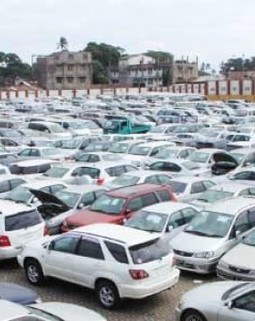Zimbabwe is gearing up for a transformative shift in its automotive landscape as it sets sights on local car manufacturing. In a recent policy review meeting, Sekai Nzenza, the Minister of Industry and Commerce, outlined the government's ambitious plans to venture into car production, highlighting the need to break free from heavy reliance on car imports.
Rethinking the Motor Industry Policy
Minister Nzenza acknowledged the strain of heavy car imports on Zimbabwe's potential in the automobile sector. There is a call for a comprehensive review of the existing Motor Industry Policy to unleash the country's latent capabilities. The government aims to foster an environment conducive to local car manufacturing, significantly departing from the reliance on imported vehicles.
Industry Resuscitation and Value Addition
The overarching goal is not only industry resuscitation but also value addition. Zimbabwe is strategically positioned for automotive growth, emphasizing the need to cultivate a thriving motor industry. The government's commitment to exploring avenues for local car manufacturing aligns with broader economic objectives.
The Lithium Advantage: Catalyst for Automotive Revolution
Zimbabwe is one of the top five countries globally with abundant lithium deposits, a critical mineral in producing electric vehicle (EV) batteries. Minister Nzenza underscored the significance of leveraging this valuable resource to propel Zimbabwe into the forefront of electric vehicle manufacturing.
Global Lithium Market:
Zimbabwe's pursuit of potential investors in lithium aligns with global trends, where lithium-ion batteries power the burgeoning electric vehicle market. The country aims not only to mine lithium but to advance towards manufacturing EV batteries domestically, contributing to the evolution of sustainable and eco-friendly transportation.
Electric Vehicles as Catalysts for Economic Growth
The emphasis on local car manufacturing, particularly electric vehicles, presents a unique opportunity for economic diversification. Zimbabwe aims to break away from traditional economic dependencies and create a sustainable automotive industry that fosters innovation, job creation, and export capabilities.
Value Addition Through Technology
Nzenza highlighted the government's vision of attracting the right investors who will mine lithium and bring cutting-edge technology for lithium processing within the country. This approach aligns with the broader strategy of adding value to natural resources rather than exporting raw materials.
Technology, Employment, and Export Substitution
Zimbabwe's President emphasized the importance of bringing in investors who can contribute to the entire value chain—mining, manufacturing, and processing lithium. Collaborating with the right investors is a key driver for introducing advanced technology, creating employment opportunities, and ultimately achieving export substitution.
Local Manufacturing for Economic Growth:
The move towards local car manufacturing, especially within the electric vehicle segment, is poised to catalyze economic growth. Zimbabwe's commitment to manufacturing locally aligns with global sustainability trends and positions the country as a potential player in the evolving automotive landscape.
Conclusion
Zimbabwe's ambitious vision to venture into local car manufacturing, powered by its rich lithium deposits, signals a transformative period for the nation's automotive sector. As the country strategically positions itself to harness the potential of lithium and embrace electric vehicle technology, it sets the stage for economic diversification, technological advancement, and a sustainable future in the global automotive arena.





